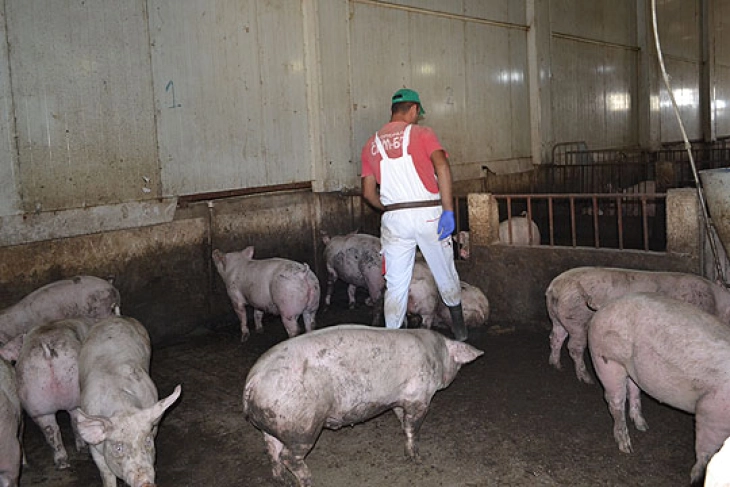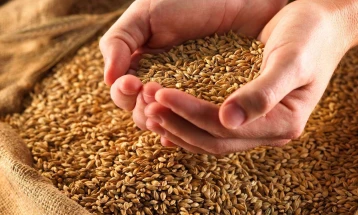Country could experience pork shortage without African swine fever measures in small farms: workshop
- If small pig farms don’t take the recommendations regarding the implementation of measures against African swine fever seriously, the country could be left without pork, said participants in a training course on sustainable technical assistance in the efforts to suppress African swine fever in North Macedonia hosted Monday by the Food and Veterinary Agency.

Skopje, 19 February 2024 (MIA) – If small pig farms don’t take the recommendations regarding the implementation of measures against African swine fever seriously, the country could be left without pork, said participants in a training course on sustainable technical assistance in the efforts to suppress African swine fever in North Macedonia hosted Monday by the Food and Veterinary Agency.
Sixty-two hotspots of African swine fever have been registered in North Macedonia since the first registered case in 2022, and over 14.000 pigs have been culled.
Participants in the workshop said one or two new infections show up each month in unregistered, small family farms that don’t pay much attention to the biosecurity measures.

“The issue with the swine fever has been ongoing for two years already, and there’s a high percent of infection in all parts of the country. Unfortunately, small farmers, those who aren’t registered, don’t fully grasp the messages of the Food and Veterinary Agency, and the larger farms are affected as well. The disease isn’t zoonotic, but it affects the economy and if it continues like this, we could remain without pork on the Macedonian dining tables. That’s why, the emphasis should be placed, above all, on the small farms, in order to raise awareness so we can fight together against this bitter issue,” said the President of the "Macedonian Pig" Association of Pig Farms, Bojan Georgievski, adding that there is no vaccine or medication for the disease.

The head of the Food and Veterinary Agency, Nikolche Babovski, said the Agency is urging farmers, hunting associations and the concessionaires of hunting grounds to implement biosecurity measures.
“We already have a media campaign through which we tried to explain the measures to all pig farmers, regardless of whether they are small family farms, or large farms. Since the first case of the disease in Europe in 2014 and until today, through the notification systems we are constantly seeing new hotspots, including in our country. Since the first case in the country, in 2022, we have registered 62 hotspots, and over 14.000 pigs have been culled. This is a fairly significant number for our economy,” said Babovski.

Babovski reiterated that humans are some of the biggest transmitters of African swine fever, which is why it is necessary to raise awareness in the fight against the disease.
“This is a virus with a high mortality rate for domesticated animals. The disease isn’t zoonotic, it doesn’t infect humans, but, unfortunately, it causes catastrophic consequences for the economies of the countries where it is spreading. In the region there is almost no country in which the disease hasn’t been registered both in domestic pigs and wild boars. The measures for its suppression on a global level have been outlined, it’s just up to us to implement them,” stressed the head of the Agency.
The workshop began on Monday and will last until Thursday. It is being hosted by the Agency with the support of the European Commission's Directorate-General for Health and Food Safety.
Photo: MIA







